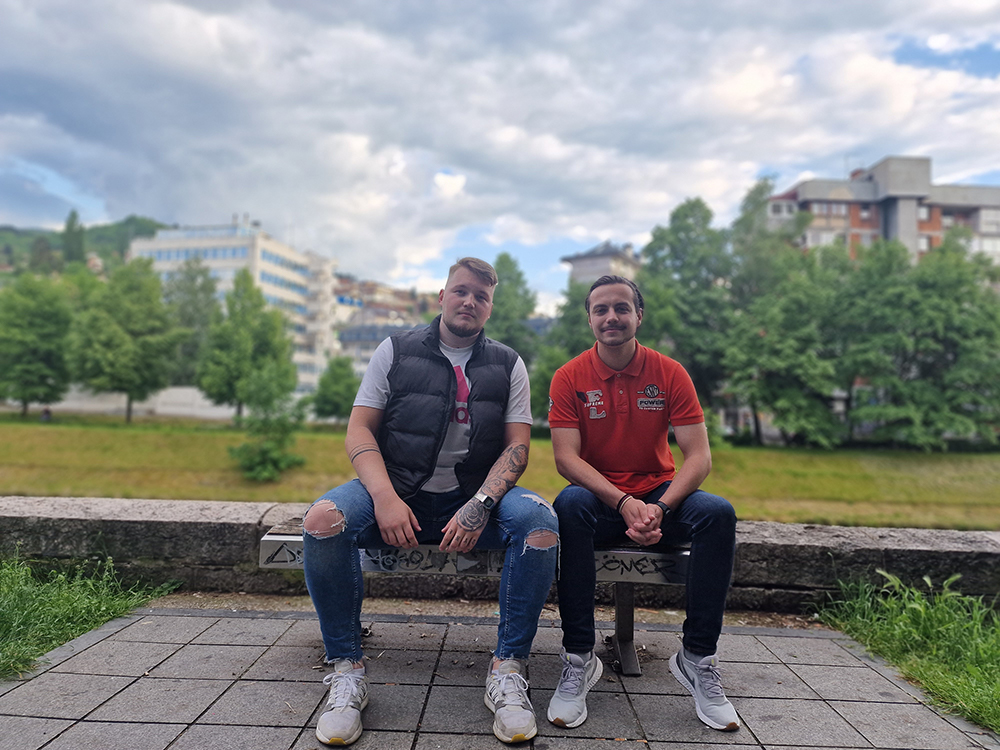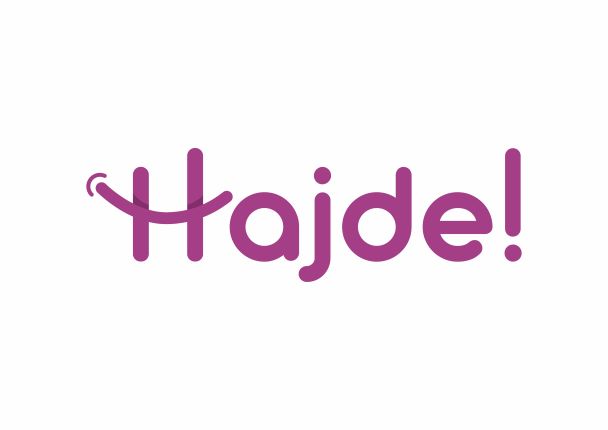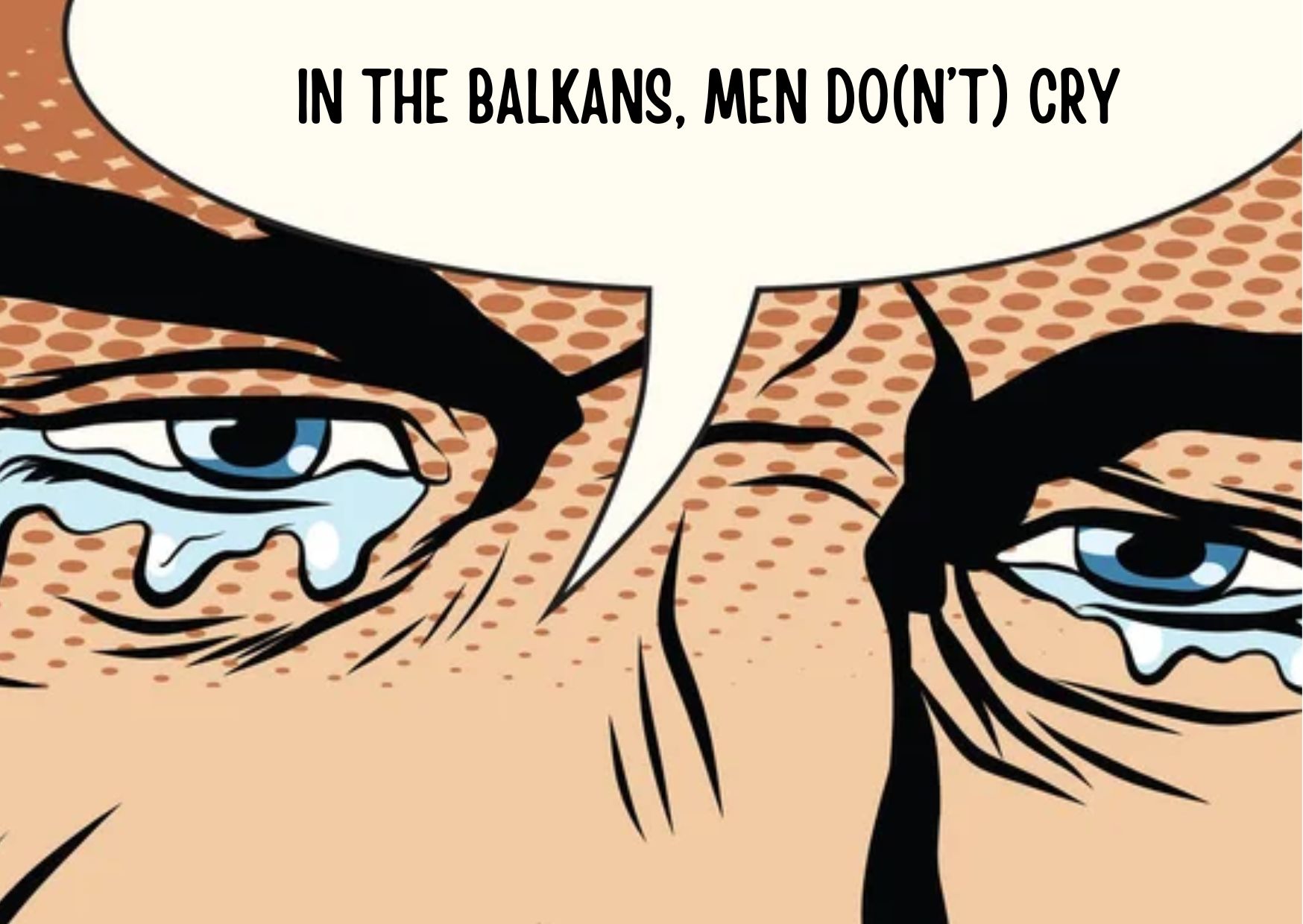Authors: Mehmed Festić and Harun Kozar
It is impossible to imagine today without the use of new technologies and social networks. The new reality brings a number of advantages, especially in the sphere of communications, but also a suitable ground for the development of hate speech and cyber violence. Transitional societies, such as the one in Bosnia and Herzegovina, have a much harder time responding to such circumstances. There is interest in this topic, but implementation in the form of legal norms, which would adequately sanction perpetrators of cyber violence, is missing.
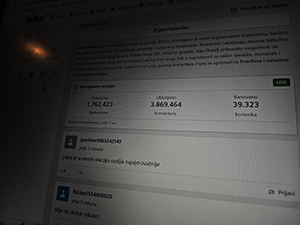
Hate speech is any form of disparagement, hatred, harassment, insult, stigmatization, threats or defamation of a person or group based on race, gender, gender identity, sexual orientation, ethno-national affiliation, age, state of health, religion and other characteristics. By increasing the number of users of social networks and internet platforms, the number of potential perpetrators of criminal acts in the field of cyber violence also increases. The target of such attacks are mostly younger people, but also influencers, for whom the Internet actually represents a business environment.
Mirza Demirović is a twenty-four-year-old, who has been actively working on platforms such as YouTube, Instagram and TikTok for a long time. He believes that parents play a key role in creating a safe internet environment for young people.
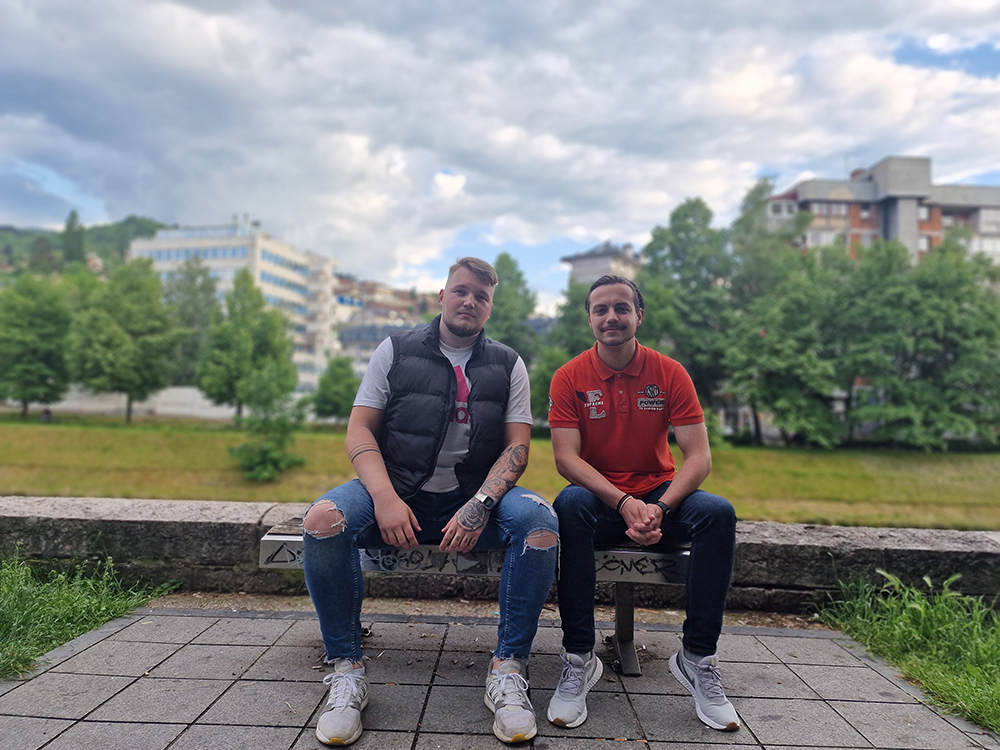 Mirza Demirović and Harun Kozar (Photo: Mehmed Festić)
Mirza Demirović and Harun Kozar (Photo: Mehmed Festić)
"As an influencer, although I don't like to call myself that, I have encountered hate speech on the Internet many times. You are most often exposed to this form of violence if you stand out or disagree with the majority. Today, more and more children use new technologies and social networks. Considering this, it is necessary to intensify the significance of this issue. Parents must be participants in children's use of the Internet, and point out to them the correct values and insist on avoiding inappropriate content, which can be fatal both for them and for the entire social community. I'm sure that many parents would be shocked if they realized what their children are doing on the Internet," says Demirović.
It is unacceptable for parents not to supervise their children
Permanent court expert in the field of criminology, Prof. dr. Hadžib Salkić also points out that it is very important to make parents aware of the importance of participation in children's use of Internet platforms.
"Children's use of the Internet should be viewed from different aspects, but if we are talking about the age at which children should be able to access social networks, then it is at the age of thirteen. It goes without saying that this process should take place with the presence and control of parents. Parental supervision should last until the age of eighteen, since only then do children become adults. What needs to be emphasized is the data that is the product of our research. It is about the fact that the virtual world becomes the real world for children. In such circumstances, it is unacceptable for parents not to supervise their children. Children today don't know about scientists or writers, but they do know about some new singers, tiktok stars and starlets. The biggest problem is that, in addition to parents, even educators do not want to look into this virtual world, so that they can understand and ultimately establish control over children," said Salkić.
Statistics on the punishment of perpetrators of crimes related to hate speech and internet violence in Bosnia and Herzegovina are extremely devastating. In the period from 2018 to 2020, 371 incidents motivated by hate speech were recorded in BiH, and only six judgments were passed, according to data from the European Commission. In July 2021, the institution of the human rights ombudsman of Bosnia and Herzegovina adopted the Special Report on hate speech in Bosnia and Herzegovina. The report refers to European and international conventions on human rights and the protection of human rights, but already in the introduction it emphasizes the lack of effective measures to punish perpetrators, given that virtual space is still unregulated in Bosnia and Herzegovina.
Educational institutions must be aware of the importance of this issue
Mirza Demirović appeals to invest additional interests in this topic, in order to harmonize legal norms that would adequately punish violators. It is also their opinion that educational programs and workshops for young people can significantly contribute to solving crises caused by hate speech on the Internet.
"I participated in several conferences related to cyber violence and hate speech. Unfortunately, the law is not sufficiently regulated, but interests exist. There are certain institutions that monitor events in the online environment. These institutions, with the resources at their disposal, can very easily obtain the identity of a person who distributes threats and hate speech via the Internet. I appeal for additional efforts to be made in the regulation of legal norms by which perpetrators would be adequately punished, because I believe that this would contribute to reducing the number of criminal offenses in this area. I am also of the opinion that more attention should be paid to this issue in educational institutions as well. This does not have to be strictly within the framework of subject classes, but in the form of customized workshops and discussions, which would build young people's critical attitude on this topic," concluded the young influencer.
The Faculty of Political Sciences of the University of Sarajevo is a higher education institution that makes daily efforts in various ways to further educate students on the topic of hate speech and violence in the online environment. By attending curricular and extracurricular activities, panel discussions and workshops, students raise awareness of the conscientious use of internet goods and the importance of media and information literacy. On this occasion, we asked students to what extent such forms of activism contribute to the reduction of hate speech and awareness of cyber violence.
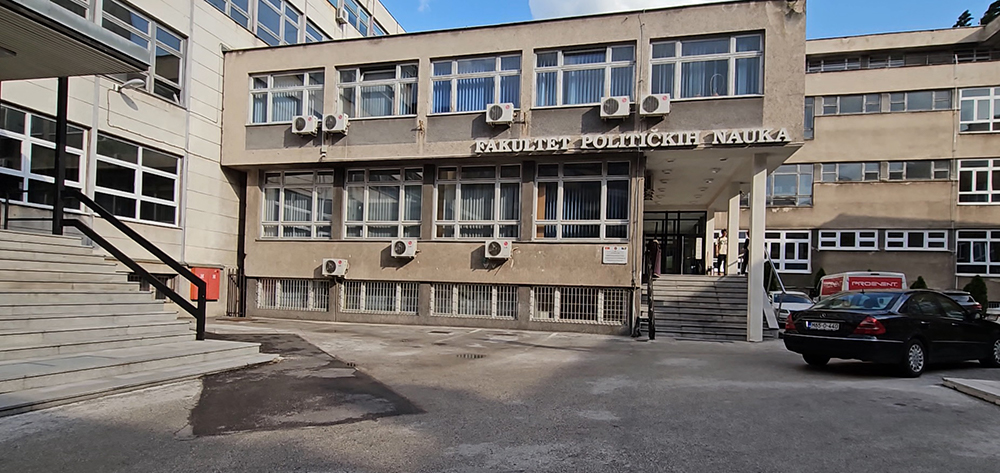 Faculty of Political Sciences Sarajevo (Photo: Mehmed Festić)
Faculty of Political Sciences Sarajevo (Photo: Mehmed Festić)
"I think that we learn a lot about cyber violence at the Faculty of Political Sciences. Through lessons within lectures, but also through extracurricular activities, we gain additional experience on the adequate use of new technologies and the safe use of social networks. Hate speech in the online sphere is a big social problem and we, as young journalists, have the opportunity to participate in its suppression," said Ajsela Kučinar, journalism student.
Amir Burazerović, also a journalism student, shares his opinion with his colleague.
"Workshops on the topic of cyber violence and media and information literacy are an everyday occurrence at the Faculty of Political Sciences. These workshops are an indicator of how to adequately use the Internet in general, and how to detect hate speech in time and how to behave in such situations," said Burazerović.
